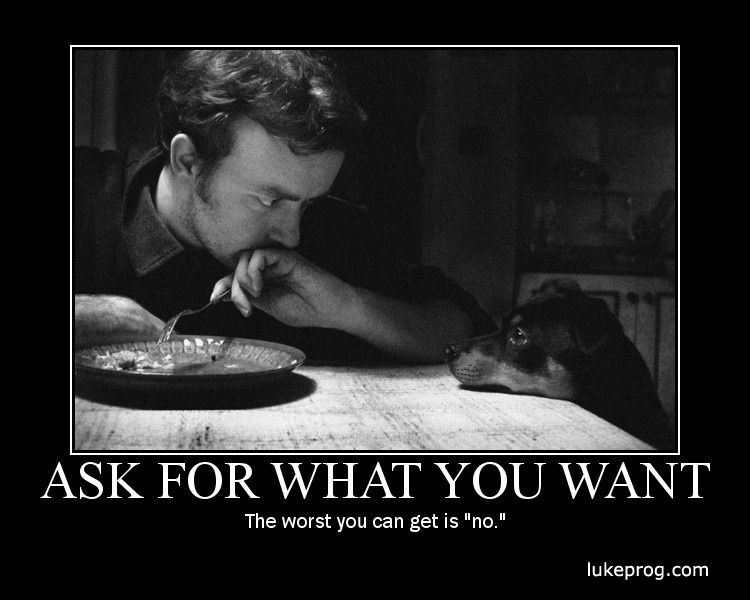 Everybody needs referrals. Referrals that get us new customers, hire great leaders, discover new resources, and build our network. Regardless of your role in life or place in your career, you should be getting referrals.
Everybody needs referrals. Referrals that get us new customers, hire great leaders, discover new resources, and build our network. Regardless of your role in life or place in your career, you should be getting referrals.
Even CEOs, Owners, and Presidents need to get referrals for reliable service providers, new team members, and maybe even some new customers! “Networking” is often seen as a chore and something left to the sales team, but you should not neglect to build key relationships that can help you and your business succeed.
Jim Canfield, CEO of REF, shared these insights with our Dallas team recently, so I thought this would be a great help for you also. Read the following and share this with the others on your team to help them get better results when asking for referrals.
Why don’t we get more referrals?
The most common reason is: We don’t ask. And honestly, even if we do ask, we’re like most people: we’re not good at it. The most common method is a general question like, “Do you know anyone who would be a good person for my business?” People normally roll their eyes back, put their hand to their chin with a furrowed brow and respond, “No, I can’t think of anybody.”
You know what? They are telling the truth. I face this all the time when talking with people about how I can meet prospective members for Renaissance Executive Forum groups. What I’ve really asked them is, “Do you know anyone of all the people you have ever met, who given their position and current business situation, would be willing and able to pay thousands of dollars per year, to have an experience similar to the one you have had or I have described as a client or customer of my business?” Whew! They reel and give up.
Here are five ways to “ask” that can help you become more effective at generating new referrals. These techniques are not intended to manipulate the situation, but to improve your communication style and enhance the ability of the prospect to help you find referrals.
1. The Specific Ask
In this case, we want to set a context for the referral request. This method helps narrow down the myriad of possible prospects by having the request targeted more specifically. The Specific Ask can be industry-specific, demographically specific, business characteristic specific or background/expertise specific. For example, an Industry Specific Ask, narrows the field of prospects to those in a certain industry group; banking, high-tech, manufacturing or construction for example. It could be an industry you are targeting or it could be generated by a question about what industries might round out the group.
2. The Value Ask
 In the Value Ask, we are engaged with the client/customer to find out where they are currently receiving value from their relationship with us. One method is to review the elements of your value proposition with your client/customer, probing as to where the most value was generated for them this year. Another method is to review the individual products or services provided and asking when and where value was generated. A third way to ascertain value is to focus on the intended outcomes they had for your product/service and how those have transpired for them.
In the Value Ask, we are engaged with the client/customer to find out where they are currently receiving value from their relationship with us. One method is to review the elements of your value proposition with your client/customer, probing as to where the most value was generated for them this year. Another method is to review the individual products or services provided and asking when and where value was generated. A third way to ascertain value is to focus on the intended outcomes they had for your product/service and how those have transpired for them.
However the conversation starts, once the client/customer has articulated the value they have received (which in and of itself is important for you to know), you have the opportunity to ask who else they know that would benefit from receiving the same kind of value they just described to you.
3. The Expert Ask
The Expert Ask is suited for client/customer and contacts who have built their own businesses by referrals. The most likely candidates are accountants, insurance professionals, attorneys or investment advisors. The idea is to visit these individuals and present the question, “You have built a successful business based on referrals, I am building my business based on referrals also; would you tell me how you did it?” Then be quiet and just ask to follow up and clarification questions. They will usually give great ideas as they look back on the ‘early days.’ In the end, you are set up to put yourself at the feet of the master by saying, “I guess I would not have learned much today if I did not ask YOU for a referral right now.” Ah, says the Master, you have learned your lesson well.
4. The Ego Ask
If you have read Malcolm Gladwell’s book, The Tipping Point, you probably remember when he talks about categories of people. One of the types is a Connector. Connectors just know more people than the rest of us. They collect relationships like others collect stamps or baseball cards. They typically do not mind trading them. With a Connector, the goal is to ask them to open their contact list and give multiple referrals. They are usually very social beings and like to set up breakfast, lunch or dinner meetings for you, them and their referrals. The Ask I used with my client/customer who knew everybody was something like, “Ken, you know I am asking all my clients/customers for referrals but the reality is you know more people than the rest of them combined, so can we work through your contacts and come up with some ideas on how to approach them?” I would then ask him to think of people he would like to meet as well and would then work hard to make those connections.
 5. The Help Ask
5. The Help Ask
One of the hardest things for most of us to do is simply look another person in the eye and ask for help. I guess we are brought up to see it as a sign of weakness, yet every time I do it, the response is “how can I help?” The nice way to use this type of ask is to use what I call a “pre-ask.” First, make a declarative statement, “I would like to ask you for help.” Notice we didn’t really ask yet, but the response is usually, “what do you need?” Explain what you are looking for in a client/customer or segue way back to one of the other ways to ask such as the Specific Ask.
So the next time you think about asking for a referral; first think about ‘how’ to ask for the referral. Matching the method to the person may make all the difference.
How do these suggestions sound to you? Have you used one of these methods before and what was the result? (Don’t answer out loud to the screen, make a comment on this blog so others can learn from your experience.)
Remember that a referral is a ‘transfer of trust.” If someone trusts you, they are willing to transfer this trust of you to the person they refer. Thus saying, you can trust me that this referral is a good one. Make sure you act upon each referral in a timely and professional manner, worthy of the trust that has been given in this process. On the other side, never refer someone you are not confident in, just because they ask you to refer them.
So, it would be wrong for me to end this blog and not ASK you for a referral. If you have been following us on this website, you’ve read about our vision and passion to serve the business community of the Metroplex. If you have CEO’s, Owners and Presidents that you see as people of character and integrity, who truly care about their people and the markets they serve, we want to know them.
Please let others know about us and lets set up a meeting where we can meet together in person. You can contact us at info@REFDallas.com or call us at (469) 269- 5148.
by Robert Hunt
More Resources
Five Steps to Generating Better Business Referrals
Here what members think about REF
[youtube http://www.youtube.com/watch?v=8511G_hy988&w=560&h=315]


